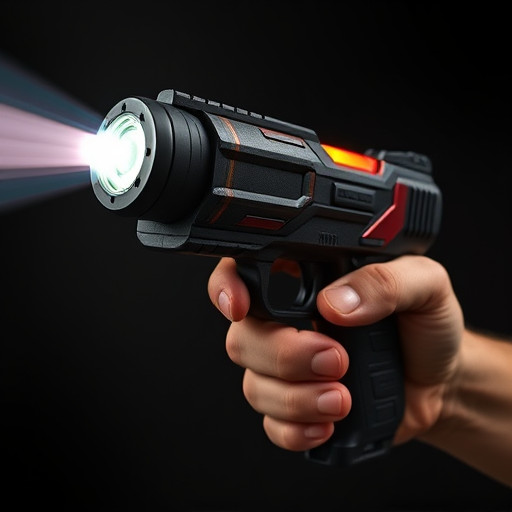Civilians in the U.S. must navigate a patchwork of state laws to own a master blaster stun gun (or taser), with regulations varying widely from open carry without permits in Texas and Florida, to strict permit and training requirements in California, New York, and Illinois. Understanding local laws regarding age restrictions, device types, and necessary permits is crucial for compliance, safety, and legal avoidance before purchasing a master blaster stun gun. Responsible ownership involves safe handling, secure storage, and knowing when/how to use it legally, including training and understanding the weapon's range and power.
“Unraveling the complexities of civilian taser ownership, this article provides an in-depth look at state laws governing the purchase and carriage of a powerful tool: the Master Blaster stun gun. From understanding the legal frameworks to exploring state-specific requirements, we guide you through the process. Dive into the implications, rights, responsibilities, and safety measures attached to owning such devices. By the end, you’ll be equipped with knowledge to navigate your state’s regulations regarding this controversial yet potent self-defense mechanism.”
- Understanding Civilian Taser Ownership: Legal Frameworks Across States
- State-Specific Requirements for Purchasing and Carrying a Master Blaster Stun Gun
- Implications and Considerations for Owning a Civilian Taser: Rights, Responsibilities, and Safety Measures
Understanding Civilian Taser Ownership: Legal Frameworks Across States
Understanding civilian taser ownership involves navigating a complex web of state laws, each with its unique regulations on acquiring and possessing a master blaster stun gun. These legal frameworks vary significantly across the nation, impacting accessibility and usage rights for non-law enforcement individuals. Some states allow open carry of stun guns without a permit, while others require stringent licensing processes.
For those seeking to own a stun gun, such as the popular master blaster models, it’s crucial to research state-specific regulations. Many states have specific requirements regarding age, background checks, and training before issuing permits for stun gun possession. This diverse legal landscape underscores the importance of staying informed about local laws to ensure compliance and safety when considering civilian stun gun ownership.
State-Specific Requirements for Purchasing and Carrying a Master Blaster Stun Gun
In the United States, the laws surrounding civilian ownership of a master blaster stun gun (or any taser) vary significantly from state to state. Each state has its own set of regulations regarding the purchase and carrying of these devices, making it crucial for potential buyers to understand the specific requirements in their jurisdiction. Some states have relatively relaxed rules, allowing individuals to acquire a stun gun without a permit or background check, while others maintain stringent controls, requiring permits, training certifications, and even waiting periods.
For instance, states like Texas and Florida generally have less restrictive policies, enabling residents to own stun guns openly or concealed without specific licenses. Conversely, California, New York, and Illinois have more stringent measures, often mandating permits and possibly specialized training for stun gun ownership and carry. These variations emphasize the need for responsible citizens to educate themselves thoroughly before purchasing a master blaster stun gun to ensure they comply with local laws and avoid any legal repercussions.
Implications and Considerations for Owning a Civilian Taser: Rights, Responsibilities, and Safety Measures
Owning a civilian master blaster stun gun comes with a unique set of rights and responsibilities that vary across state laws. While some states allow private citizens to own stun guns for self-defense, others have stringent requirements or outright ban their possession. It’s crucial to understand these regulations to ensure compliance and promote safety.
Before acquiring a stun gun, individuals should familiarize themselves with local and federal laws. This includes understanding the specific type of stun device allowed, age restrictions, and any necessary permits or licenses. Responsible ownership involves adhering to safe handling practices, storing devices securely, and knowing when and how to use them legally. Safety measures, such as proper training and understanding the weapon’s range and power, are essential to prevent accidental discharge and ensure effective self-defense.
Understanding the legal landscape surrounding civilian taser ownership, including specific requirements for acquiring and carrying a master blaster stun gun, is paramount. Each state has its own set of regulations, ranging from strict licensing mandates to permissive open carry policies. Before purchasing or brandishing a stun gun, individuals must familiarize themselves with their state’s unique laws to ensure compliance and promote public safety. This knowledge empowers responsible citizens while advocating for informed decision-making regarding self-defense tools like the master blaster stun gun.
